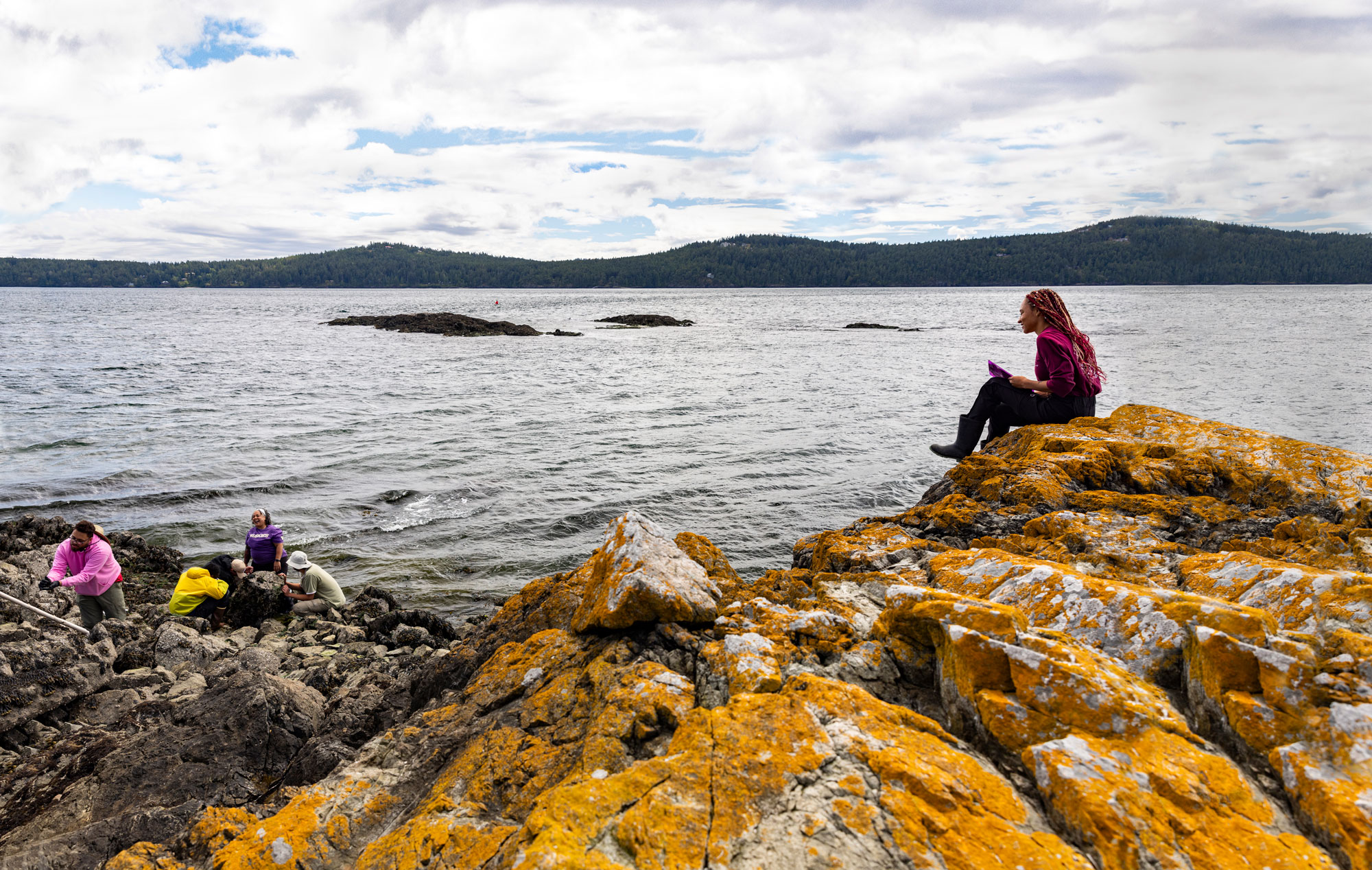

On a windy June afternoon, Chris Mantegna (fourth from left, in purple), ’21, encourages undergraduates to flip over barnacle-studded rocks and sift through seaweed. Equipped with clipboards to record their findings, they’re creating a snapshot of the organisms in the island’s intertidal zone—from orange sea cucumbers to the camouflaged armored mollusks called chitons.
Mantegna, a third-year graduate student in aquatic and fishery sciences, has spent the past three summers mentoring undergrads here on Yellow Island, a pristine 11-acre nature preserve in Washington’s San Juan Islands. She created this eight-week program for students to get their hands dirty in the field and learn cutting-edge lab techniques at the UW Friday Harbor Laboratories.
Mantegna’s dream of being a marine biologist became a reality at the UW thanks to financial support from the Husky Promise and Washington College Grant. In 2015, after careers in the Navy and health care, she moved across the country to Seattle. After she earned her UW bachelor’s in marine biology, her professors and advisers encouraged her to pursue a graduate degree.
Mantegna’s doctoral work reflects her passions both for science and for making it accessible to others. She’s investigating the genetic impact of pollutant chemicals on shellfish while also studying community outreach and environmental literacy.
Similarly, the Yellow Island summer mentorship program, created in partnership with Black in Marine Science and The Nature Conservancy, combines research and access. She aims to create “an inclusive environment where students feel part of the community,” Mantegna says. Most of the student scholars come from communities underrepresented in marine sciences. Working in a field where she’s often the only Black woman, Mantegna understands their need for a space where they can learn without fear—and express themselves freely.
“In marine science, there has to be more than one way to do fieldwork,” Mantegna says. “We need to provide an opportunity for differing perspectives to show up and see how we do it together.”